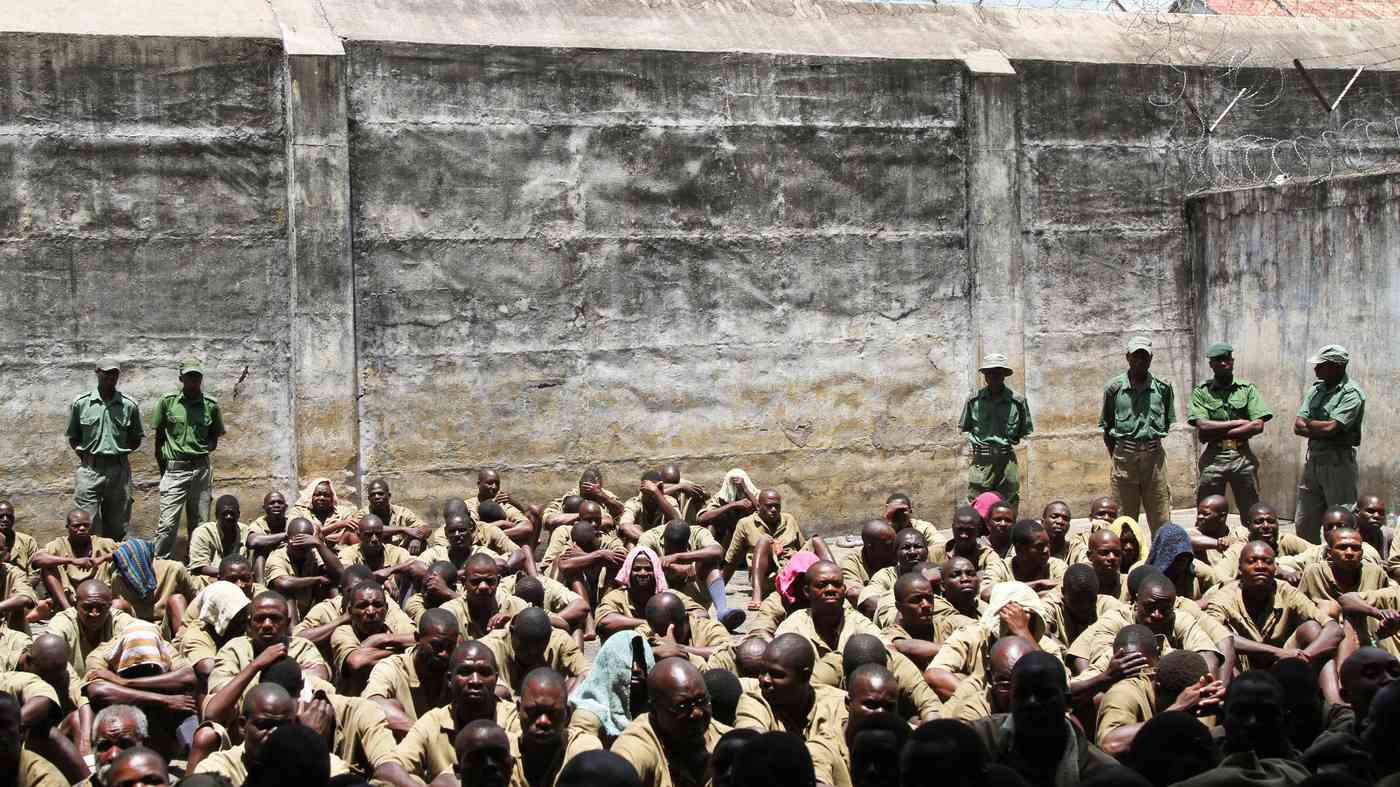
Harare remand prison, despite being guarded 24/7, is no doubt a haven for drugs, smuggling and dealing which is aided by those paid to guard the alleged criminals.
Having been forced to make the prison my home for 72 days from February 25, I speak from first-hand experience.
There is nothing that you can’t find at the prison if you wish to have it, from mbanje, mutoriro, tumbwa, and other intoxicating substances.
The intoxicating substances find their way into the old and dilapidated three storey building which houses the most dangerous accused persons referred to as D Class prisoners.
In this section of the prison where I was housed, sleeping next to Moses Mpofu and Mike Chimombe, the rules are different.
It is a world of its own.
Harare Remand Prison is an economy on its own, run by drug lords who supply, mutoriro, mbanje and tumbwa among other dangerous substances to a thriving market, which those who have lived long enough to qualify as official tenants, suspect totals over US$8000 daily.
To protect the accused persons who are still being held in prison, I will not name individuals, but will share details from what I observed, heard and experienced during my painful stay at the prison.
- Zanu PF socialite granted $50 000 bail
- Detained CCC activist falls sick
- CCC activist relives Harare Remand Prison aftereffects
- Rick Ross show marred by confusion
Keep Reading
You need to understand that when a prisoner is processed into the D class section of Harare Remand, they go through a humiliating strip search, which logically is supposed to ensure that no inmate enters the old block of cells with prohibited substances.
I was later to learn that this process is nothing, but a way of ensuring that all illegal stuff must pay a toll to the guards before entering.
On day one, we were ushered in as our names were called at the gate house and made to sit on the ground in rows of fives, one after the other.
They call this Foren - derived from “fall in line”, which over the years has mutated to a word of its own.
In that state of Foren, B Class prisons (convicted but serving a sentence of not more than 30 months) who wear orange prison garb, came through giving us lice infested and dirty prison issued Khakis and a small bag.
These clothes are passed on from one prisoner to the other upon release or transfer to another prison, without as any washing.
From the Foren, we were ushered into a corridor which links Harare Remand to Central Prison and made to strip naked in from of 20 other inmates and seven guards, where in that state of nudity, we were asked to do star jumps (guards call them clacks), to the amusement of our tormentors, who for further entertainment occasionally assaulted inmates.
Apart from the dehumanising treatment and the torture, this act later proved to be a useless exercise, because the very reason of strip searching inmates is to eliminate smuggling of illegal substances like sharp objects, cash, drugs and cellphones.
The same, however, still find their way in even after this humiliation.
Prisoners are not allowed access to cash while inside prison and any money found on an inmate is confiscated at law and ceded to the state.
It is crazy, however, that if you are looking to change a US$100 you can get it with ease from other inmates.
This cash comes into prison through guards who take their own fair share before passing it on to the intended recipient.
There is a multi-currency regime at Harare Remand Prison, drugs and power are sold for sugar, cigarettes and cash at highly discounted rates.
Two packets of sealed cigarettes will get you a 2kgs of sugar or a twist of mbanje.
Alternatively it will get you a US$1, favour from the guards or a tote of tumbwa.
Three sticks of cigarettes will get you a boiled egg or a banana.
On the morning of February 26 as I walked out of B1 holding cell to the prison’s reception, my nostrils picked the unpleasant (to me) smell of marinjuana and just as I took a turn towards the stairs I saw a group of inmates, puffing and passing a blunt.
A few steps away was a prison guard busy minding his own business.
Little did I know it was just the tip of the iceberg.
Poorly paid, under resourced and with low morale, prison guards rely on inmates for a decent livelihood, without whom they might not even afford bus fare to and from work.
Infact when they look at inmates they see customers.
For two packs of sealed cigarettes (masiridi) one can buy a guard to help smuggle illegal objects for personal use.
The guards themselves are the drug lords.
They supply the infamous tumbwa, mutoriro and mbanje to prisoners and they use inmates, who trade on their behalf.
There is nothing that you can’t find in that prison.
On March 21, fellow inmate Luke Zinyengere pulled a dramatic escape from prison while he was at the Harare magistrates court.
He had allegedly smuggled a gun into prison which he used to make good his escape although it only lasted three days.
He had allegedly smuggled into Harare Remand prison with the help of a guard who according to close sources was allegedly paid US$500 for the service.
The guard was later arrested and is facing internal investigations.
What followed the days after was hell for inmates. I will detail this in the next instalment.
Just to say, prison guards from Chikurubi Maximum Security Prison were transported in trucks on March 23 to carry out a search at the section for presumably other guns and illegal substances.
A total of sixcellphones, plastic bags of mbanje, pipes used in smoking mutoriro or dombo as it was called in prison were recovered.
Losses were made as illegal brew was flashed down the toilet before the search could be conducted.
It is on this day that I realised that some connected individuals actually had cellphones in prison.
Not only drugs are smuggled in this place, but there is a thriving market for meat and well cooked beans inside the cells as a substitute for the official substandard meals.
While prisoners were fed boiled sugar beans almost without cooking oil, tomatoes and onions, first floor prisoners have an option of buying well cooked beans in bucket loads and at times even chicken.
This food is cooked in the same kitchen but differently, and is smuggled into the section in buckets where it’s sold for cigarettes or cash.
Some prison guards have opened their own tuck shops and they take out the loot from these supplies to these tuckshops to sustain themselves in the face of a cruel economic environment.
For an officer who knows it’s illegal to have money in prison, they will come to you and ask for just a dollar so that they get home.
They watched as our visitors brought fast foods, which they could hardly afford on account of the poor salaries.
As I write this article I know trade is happening at Harare Remand Prison, not out of desire to break the rules and laws, but for prison guards it’s a way of survival and for inmates, it’s a way of keeping sane.
The place is depressing and as the government struggles to provide resources, both the guards and inmates have to make a plan to survive otherwise chaos would reign.
Top bosses within the ranks of the prison system drive top of the range cars and force their juniors to do work without being properly paid.
I was lucky that I had solid support from both outside prison and inside and was not tempted to trade in any way.
However, I can safely say without contradicting myself that some inmates are comfortable with staying in that prison.
They make more money than they will ever make from outside.
Unless the government improves the livelihood of guard’s by paying them better it’s impossible to control the smuggling that happens at remand prison or any other.











